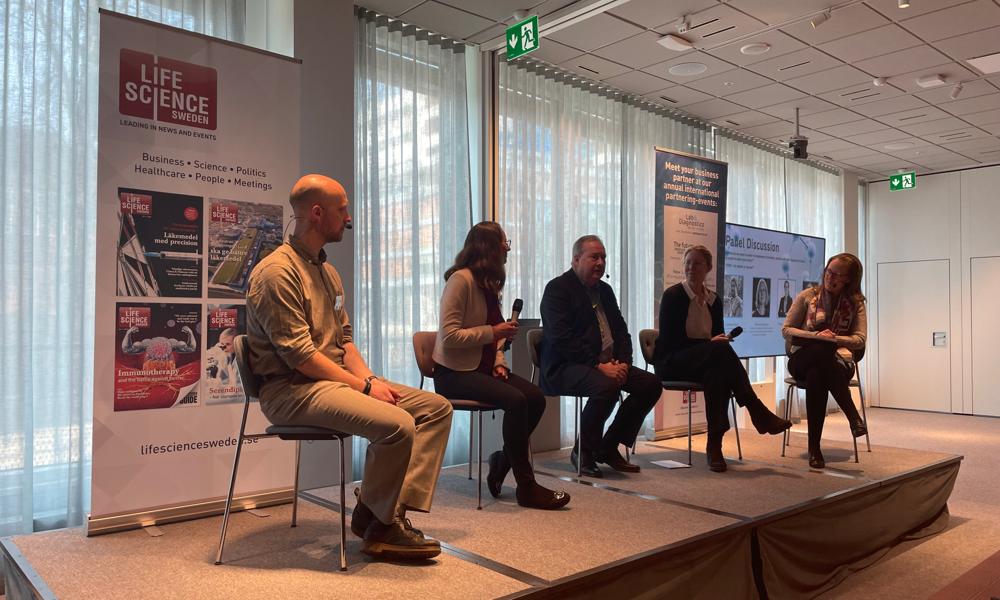On 26 May 2022, the new regulatory framework for in-vitro diagnostics was introduced in the EU. Since then, many have expressed concerns about the transition to the new guidelines, as previously reported by Life Science Sweden.
The new regulations were discussed in a panel discussion on Wednesday at the Lab & Diagnostics of the Future meeting. Participants in the discussion were Andreas Resar, Task Manager of the regions’ IVDR network, Therese Sundell, CCO of Resitu Medical, Ulf G Andersson, CEO of Medeon Science Park and Anna Lindstrand, Professor at the Karolinska Institute and Laboratory Director.
AnnonsAccording to Therese Sundell, part of the problem is that the queues to certify diagnostic products are now building up at the notified bodies.
“The notified bodies have a backlog, and the larger companies are being prioritised while the smaller companies have to wait their turn,” she says.
Ulf G Andersson emphasised that the new regulations have already affected several companies developing diagnostics and that smaller companies are having a particularly challenging time. He says that some companies have had to abandon their development projects in order to focus on the transition to the new regulations.
Annons“This will ultimately affect patients. Some rare diseases may not be diagnosed the same way as before,” says Ulf G Andersson.
He also believes that there is a risk that this may cause greater differences between the regions in Sweden when it comes to the type of available diagnostics – a concern that Anna Lindstrand also shares. Every region must familiarise itself with the effect of IVDR and try to solve the arising problems independently, she says.
Annons
“The healthcare system is currently undergoing a change, and we have some tests and biomarkers available that the healthcare system is rapidly starting to use. The problem with this type of regulation is that it will cause greater differences between the regions in Sweden.”
AnnonsShe also believes that this may cause a shortage of diagnostic products.
Andreas Resar believes that the healthcare system is lagging behind when it comes to IVDR but that there is a plan to address the problem. However, he also sees bright spots.
“I believe that talking to each other and sharing knowledge may solve some of the problems.”
Annons